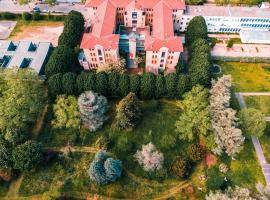CCO is first and foremost a non-profit organisation, created in 1963. We are a laboratory for social and cultural innovation. As a PAVA (Point d’Appui à la Vie Associative) we support, train and host about 300 NGOs every year. We are one of the main actors in this sphere at the level of the Metropole of Lyon.
We are very active in citizen engagement. Our independent position allows us to mediate between different actors - developers, planners, public authorities, residents, users etc. We aim to build the capacity of inhabitants to become real actors of the city.
We’re also a Fabrique de territoire (a territorial resource centre) with a FabLab and a digital workshop where students, residents and others can come along and find resources to make things or to overcome the digital divide.
As well as working with NGOs, we are becoming an actor in the Social and Solidarity Economy in a broader sense, which means working with cooperatives, mutualist groups, associations and others.
The CCO has been an important champion of the Cultural Rights paradigm, ever since the Fribourg Declaration[1]. CCO brought Patrice Meyer-Bisch[2] here to share his ideas and our former Director was very active in that movement.
We are also very involved in participatory creation processes. We always ask how we are going to question art? Who sponsors it? Who gets to decide what is legitimate and what isn’t? We’re always looking at the aesthetic and the social issues together, without compromising on one or the other. Both are absolutely at the heart of what we do.
We run a Micro-folie from Musée de la Villette, which enables digital visits of major national museums. It can be mobile or fixed. We take it to schools on a tricycle. We try to “hack” this tool as a way of initiating new activities. We create a visit and that’s the starting point for an initiative. We organise a lot of events and they’re always co-produced. We work with established and unestablished cultural actors and other players like social organisations. We have a role as cultural mediators and take cultural activities into schools and other spaces.
To sum up, CCO comes from the popular education movement and its central objective is the emancipation of people.
[1] Fribourg Declaration on Cultural Rights (2007), which clarifies on the basis of existing instruments the content of cultural rights within the system of human rights. See https://droitsculturels.org/observatoire/la-declaration-de-fribourg/
[2] One of the key experts in the “Fribourg Group”, which developed the Declaration






















